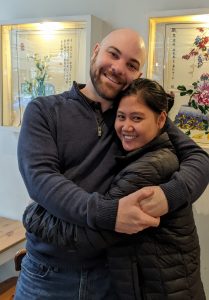
Australia has a long history of welcoming those who have been displaced from their homes because of conflict, persecution, and human rights abuses.
The Protection Visa regime was introduced as part of Australia’s international obligations under the 1951 Convention relating to the Status of Refugees Convention 1951 (‘Convention’) and many other international treaties. These treaties are ratified under the Migration Act 1958 (Cth) and the Migration Regulations 1994 (Cth), providing asylum for refugees who cannot return to their home country for fear of being persecuted.


Subclass 866 is an onshore protection visa application that allows individuals who cannot return to their home country because of the fear of persecution to remain in Australia permanently.


Subclass 785 is a temporary protection visa that enable individuals without a visa to remain in Australia for three years and seek asylum. Successful applicants can work, study, and have access government services such as Centrelink.


Subclass 785 is another temporary protection visa that enable individuals without a visa to remain in Australia for five years and seek asylum. Applicants for this visa must intend to intend to work or study in regional Australia. You may be eligible for permanent residency.

Migration Act 1958 defines ‘refugee’ as a person in Australia who is:

For the fear of persecution to be well founded, there must be a ‘real chance’ that the persecution would happen in the reasonably foreseeable future if the person was to return to their home country. Real chance means that the fear of persecution is not remote or far-fetched.
A person is not considered a refugee, even if they meet all the other criteria, if there are serious reasons for considering that they have:
A person does not have a well-founded fear of persecution if they can:
Complementary protection is protection for those who are not refugees according to the Act, but who can’t return to their home country because they will suffer certain types of harm which engage Australia’s other protection obligations. Significant harm is different to serious harm. It is defined as:

Book in a consultation with us today so we can start to provide solutions to your migration or citizenship concerns.






 Phil and the SMC team were fabulous! Highly recommended. Our case was very very complex. Katherine was Stateless living in a Burmese refugee camp in Thailand. No passport, no ID documents. Health checks were required outside of the camp, a police check waiver was required, an ‘exit permit’ from Thailand and so many other difficulties. Phil guided us through and went well above his responsibilities to help us with everything from A-Z over more than two years. We would recommend SMC without hesitation.
Phil and the SMC team were fabulous! Highly recommended. Our case was very very complex. Katherine was Stateless living in a Burmese refugee camp in Thailand. No passport, no ID documents. Health checks were required outside of the camp, a police check waiver was required, an ‘exit permit’ from Thailand and so many other difficulties. Phil guided us through and went well above his responsibilities to help us with everything from A-Z over more than two years. We would recommend SMC without hesitation.
I can’t express my gratitude enough to SMC for their care, support and amazing work. My case was a complex partner case involving family violence that required many extra layers of work and support. I am now a Permanent Resident and moving on with my life. SMC provided emotional support (not a core area of their work!) and showed patience, diligence and the highest level of knowledge to achieve a successful outcome. I highly recommend Phil West and SMC for your visa process.
We wish to express our heart-felt thanks for Phil & the SMC team for their amazing service for our really complicated and difficult case.
My wife and small son were in a refugee camp with no passport or ID Card. The complications for them to travel out of the camp to go to medical exams, obtain a Thai ‘Exit Permit’ were very difficult and involved communication with the International Organisation for Migration & the Thai Ministry of the Interior as well as the visa processing desk at the embassy. The SMC team went well beyond what they were obliged to do to obtain a positive outcome for us. The process started in 2018 when we submitted an incorrect visa. SMC took over our case, corrected this error and then worked over four years on our case. At times my wife and I were really stressed & anxious but SMC were able to help reduce this stress on a personal level showing patience and care.
In September 2022, my wife and son arrived as Permanent Residents in Australia and we were at last reunited to start the rest of our lives as a family together.



Please send us some basic information about your visa, citizenship or appeal concern.